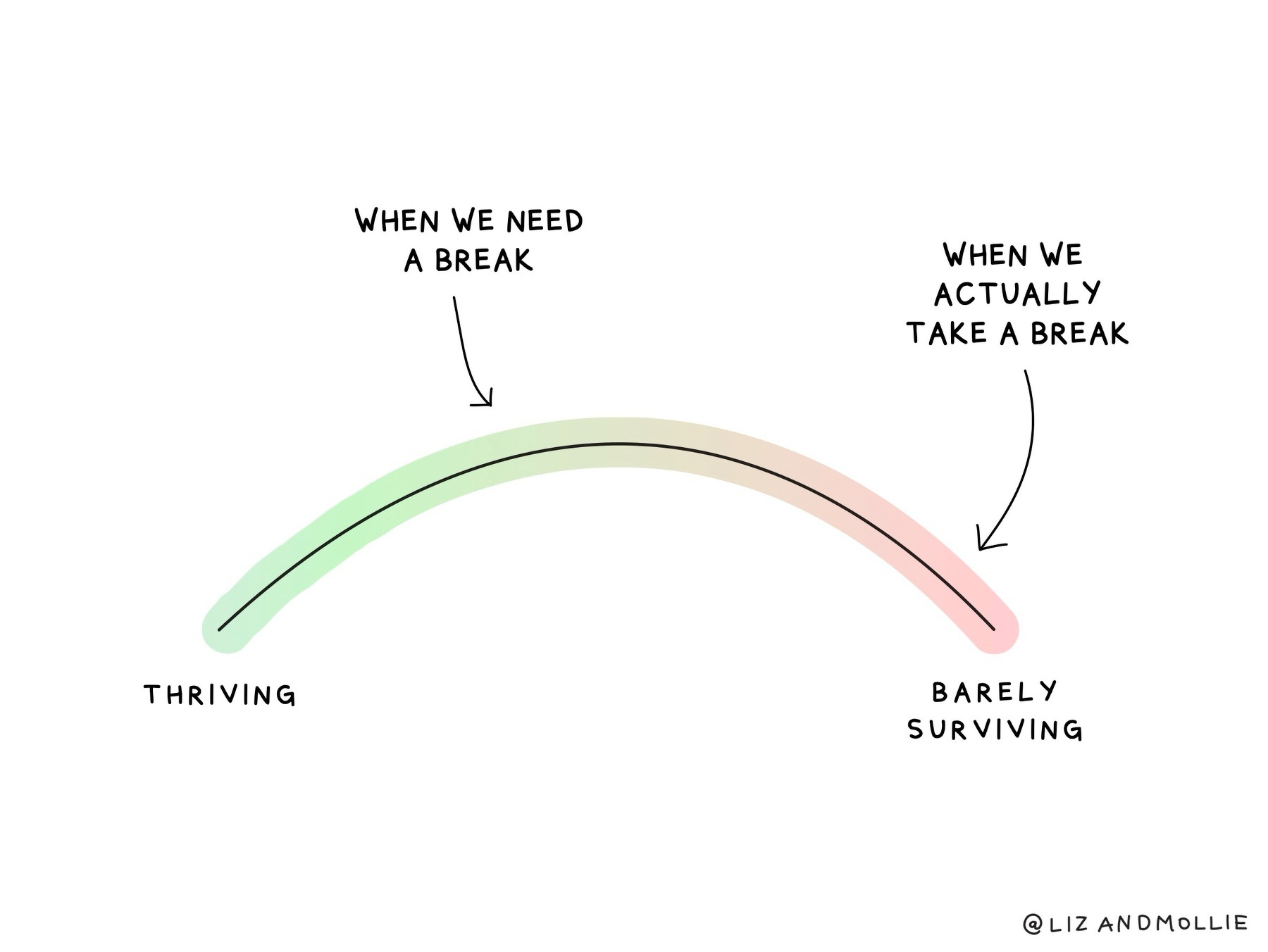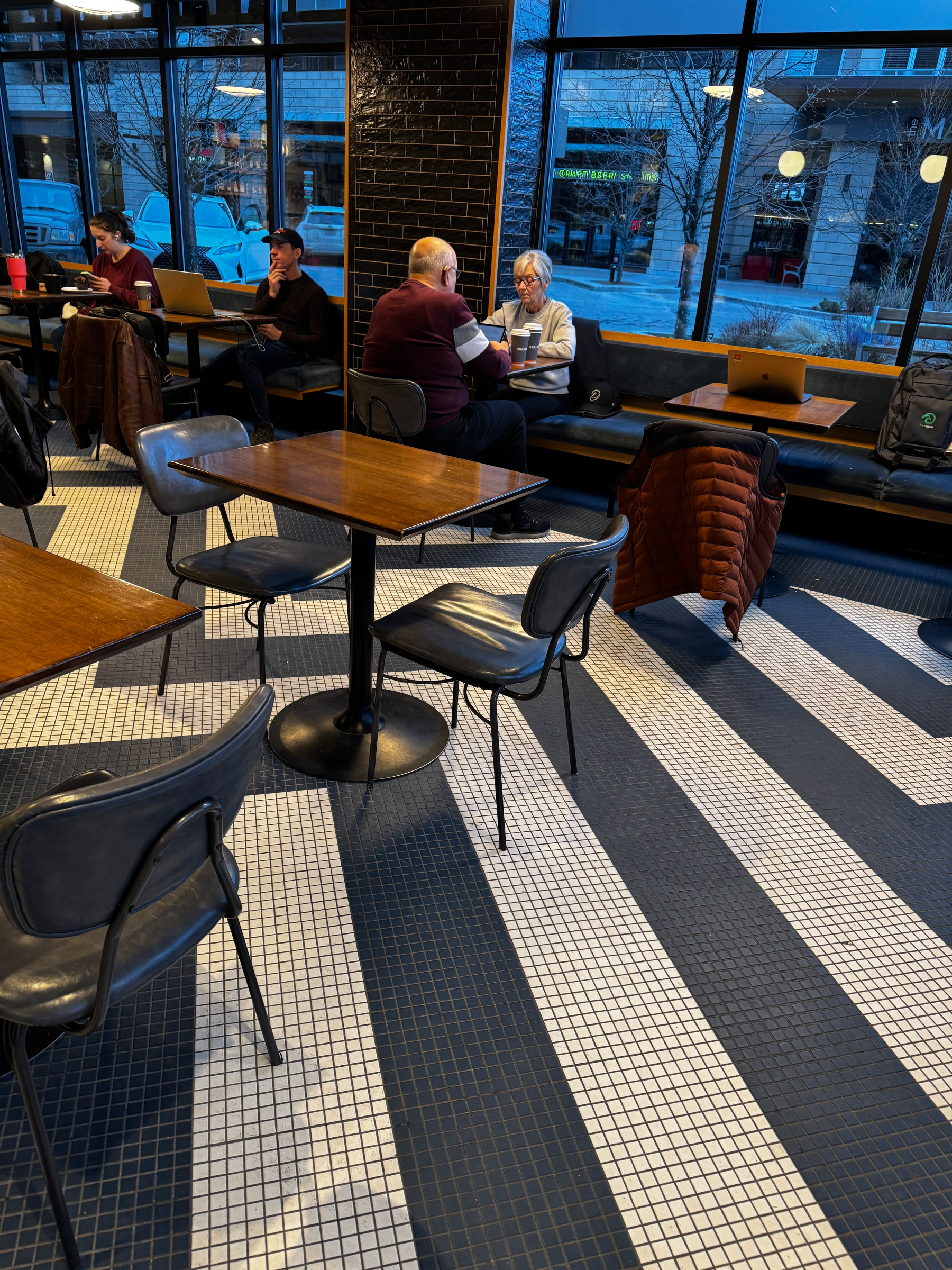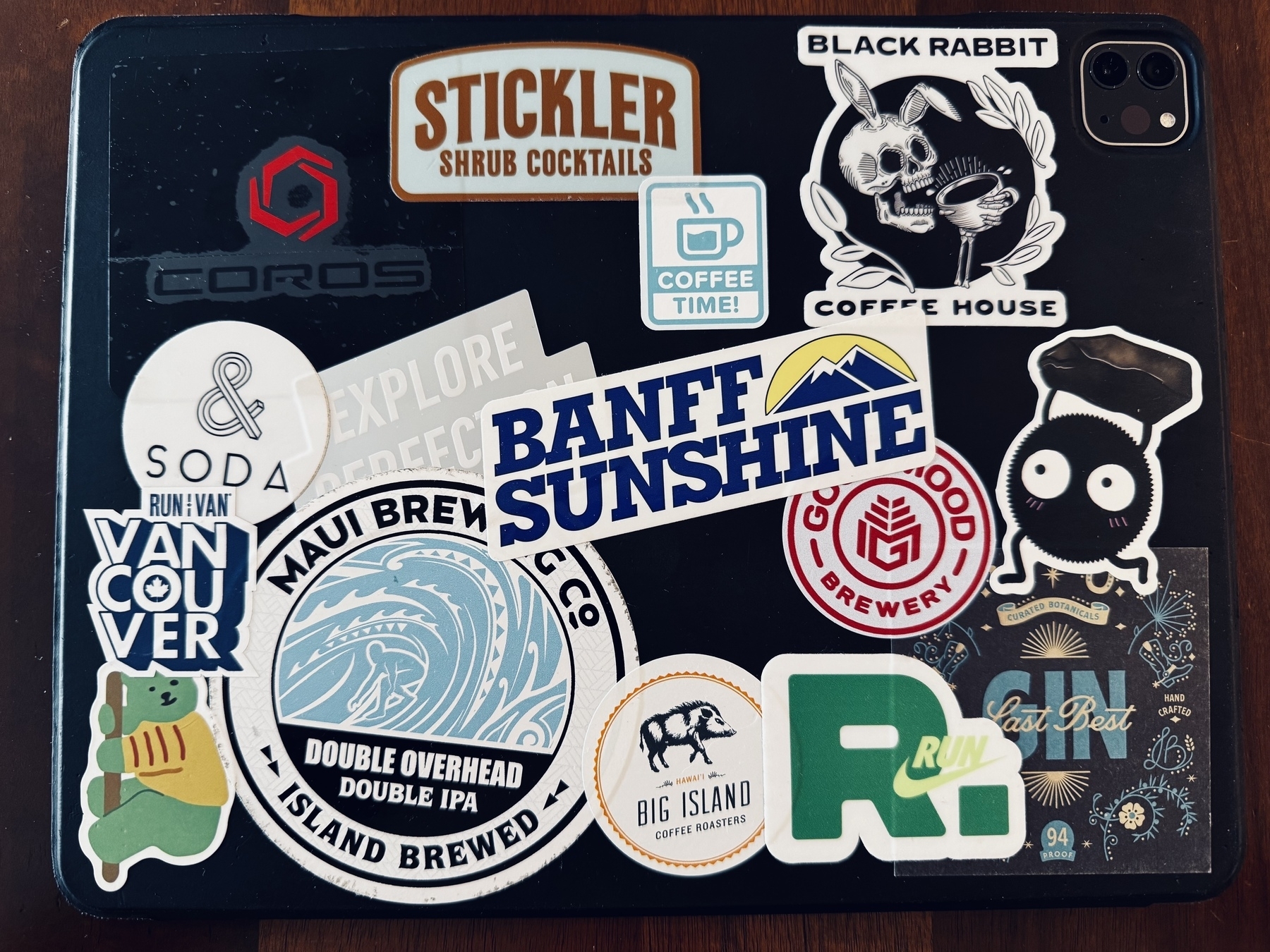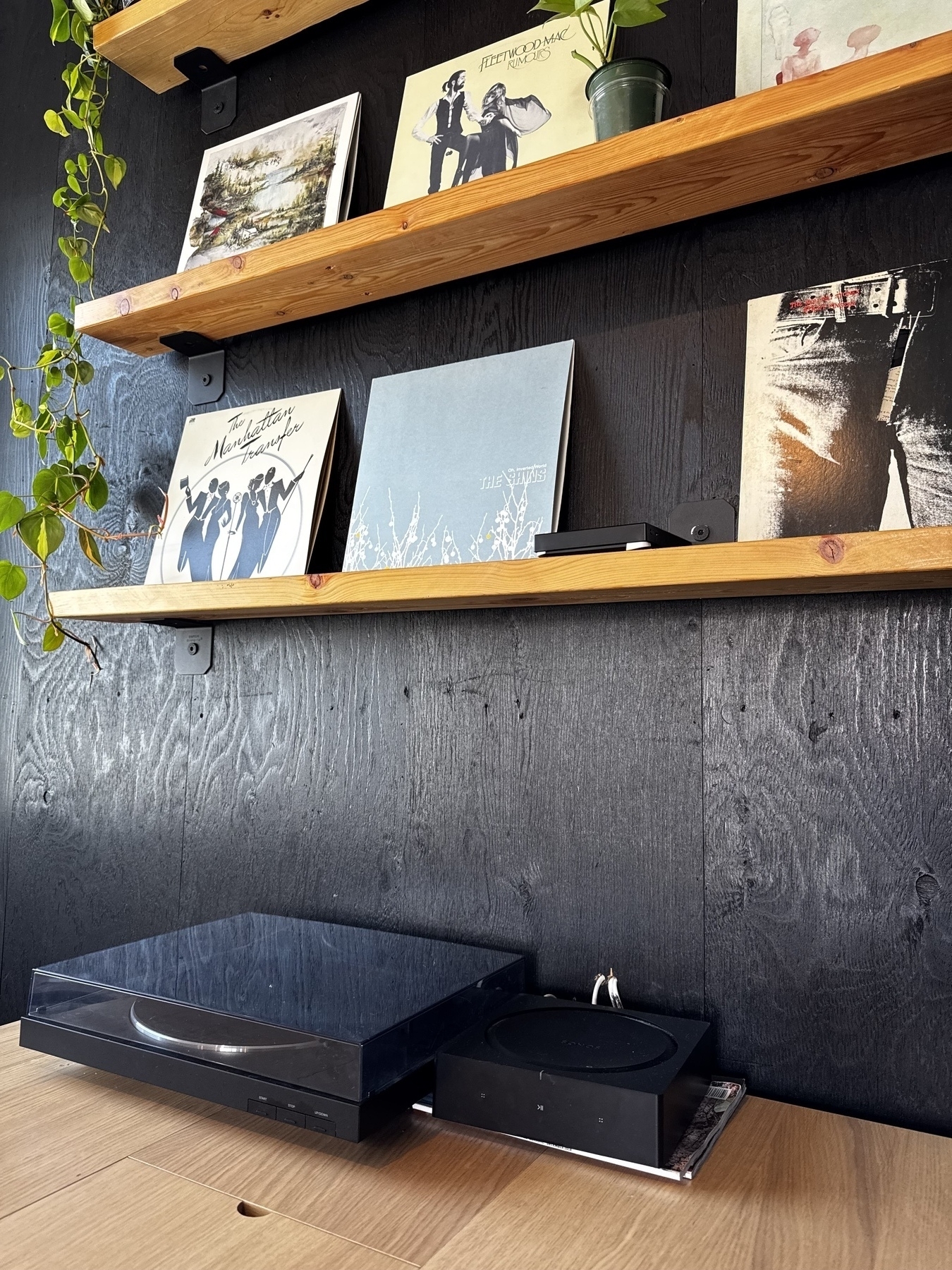Rewatching Frieren season 1 now that season 2 has started. If you haven’t seen it, you need to set aside some time to do so. It’s magical. 🧝🏻♀️
Rewatching Frieren season 1 now that season 2 has started. If you haven’t seen it, you need to set aside some time to do so. It’s magical. 🧝🏻♀️
This is me. I’m not proud of it.

Cute older couple enjoying some coffee and reading together on iPads. I ended up sitting next to them and could hear them discussing the articles they were reading. #couplegoals

I’ve been away from blogging and social media in general for a while now. When my nervous system gets overloaded I tend to pull back and remove myself from as much as possible. And holy fuck am I overloaded. We all are. I live in Canada and it feels like there’s a massive fire raging below us that keeps threatening to spread across the border and there’s nothing we can do but wait.
I know I’m late to this article but it’s so well written. The hatred and loathing directed towards AI is palpable. I love it.
“Miyazaki tells stories that blend the ordinary and the fantastic in ways people find deeply meaningful. Altman tells lies for money.”
We’re not on Zoom because we’re working. I’m not even sure what we do anymore can be called work. It’s a simulation of work. We get on Zoom and report on whether targets, projections, and KPIs (whatever the good godfuck those are) have been met, we move things around a spreadsheet. We shuffle the chairs on the Titanic. We make proclamations about how much hot air we’ll be moving from one location to another location. We get and give updates on how close we are to achieving a breakthrough which is always right around the corner. We fire up some slop generator to come up with our next response. And just for kicks, we’ll do a complete reorg every couple of weeks. All while Chad and Todd backchannel about Cheryl’s cleavage.
Via Mike Monteiro’s amazing newsletter that you should definitely subscribe to. Please check it out and support incredible writers that don’t use platforms that enable nazi’s.
“At the current rate of technological advance, all reliable ways of validating truth will soon be gone. My best guess is that we have another 12 months to enjoy some degree of confidence in our shared sense of reality.”
“Virginia Woolf was a storyteller. Shel Silverstein was a storyteller. You work in tech, shitbird.”
FUCK! I was afraid of something like this when Canva purchased Affinity. They were the last good subscription free alternative to Adobe.
The enshitification of all things continues.
You can also repalace running with “move your body”. In my almost 50 years on this planet I haven’t found any drug that regulates my brain better than getting outside and moving.
Feel tired?
Run.
Feel anxious?
Run
Feel depressed?
Run
Feel hopeless?
Run
Feel happy, satisfied, and overall content?
Run
I’ve worked in the tech industry my entire life. I started as a web developer back when the web was still full of promise and good vibes. When people wanted to truly connect and enshitification hadn’t taken over yet.
I’ve previously mentioned that I’m leaving tech as a I no longer stomach working for this industry and what it’s turned into.
In his latest newsletter Mike Monteiro talks about all of this much more eloquently than I ever could. Give it a read.
I love it when I discover a movie, TV show, book, whatever that I’d never heard of before. I think I discovered this movie from some random reel in Instagram.
Yes, the time loop trope has been done to death at this point but I thought this was a lot of fun.
This is incredibly embarrassing and gross. I keep hoping for a new tech hardware startup with actual values (like Apple used to have) will appear.
New toy has arrived. 🤓🎙️

I’ve seen a few people sharing their laptop sticker collection today so I thought I’d jump in.
I don’t have any on my MacBook but my iPad Pro is full of them. 😉

There are some cool little effects hiding in iOS 26. I love this faux 3D effect you can add to your lock screen. #Apple #iOS26
Apple public bets are out! Immediately installed on my M2 13 inch iPad Pro. I do a lot of my work on this machine and I’m still a little shocked we finally have windows on iPad OS.

because wherever I sat—on the deck of a ship or at a street café in Paris or Bangkok—I would be sitting under the same glass bell jar, stewing in my own sour air. ― Sylvia Plath, The Bell Jar
Depression is a hell of a thing. I feel like I am drowning. My head briefly gasps for air above the waters surface while I sleep, then I wake up and I’m pulled back under. I cannot breathe, I’m tired, I wish I could give up.
You know the coffee shop is good when they have a collection of vinyl to choose from. 😎☕️
